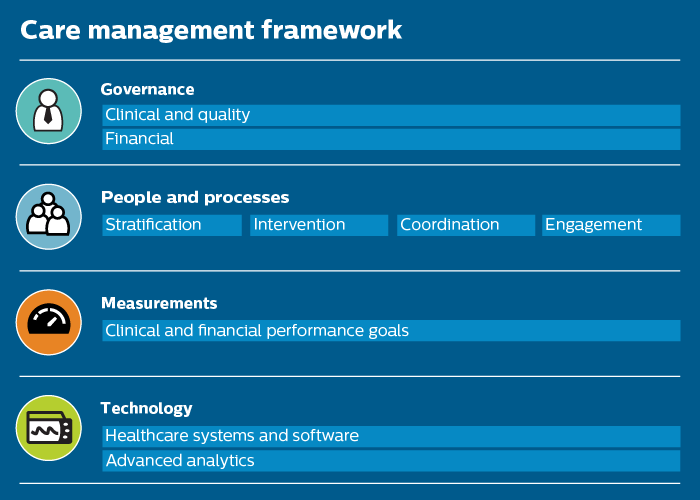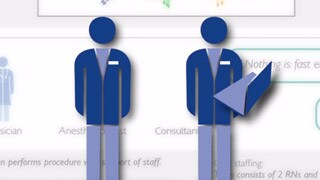Orchestrating change in care management
Trends in healthcare management
Care Management is an integral part of clinical operations, engaging key stakeholders - including clinicians, patients, their families, and caregivers - in care delivery and coordination. Traditionally, providers have limited Care Management efforts to the inpatient setting, focused on managing acute care episodes. However, the Affordable Care Act is rapidly changing the healthcare landscape by driving value-based care delivery models aimed at improving outcomes and reducing costs to the overall population.
Aligning and engaging stakeholders - learn more about how we use experience flow mapping to gain insights.
To succeed in the post-reform marketplace and capture market share, providers will need to take increased responsibility for population risk management and care coordination across the entire care continuum, expanding their reach to pre- and post-acute care settings and evolving into consumer-centric entities. To accomplish this, Care Management must become an engine for innovation and be at the forefront of the change to value-based care delivery while being flexible enough to support this revenue transition period. Value-based care transformation requires an innovative and revolutionary move toward prevention-focused, highly-coordinated, and easily accessible care across the continuum.
In our practice, we have seen many attempts to change Care Management - unfortunately not all of them equally successful. As with an orchestra, participating parties within a care network need to be properly aligned and engaged to support change. Change also involves many layers - executives, physicians, and managers as well as all other staff. For such a transformational project, program leads must have the ability to influence change and understand the cultural and behavioral barriers they will encounter. Top management endorsement seems so obvious but the fact that the endorsement must be of a consistent and persistent nature, as transformation is not carried out overnight, is often under-appreciated as a true success factor.
Care Management must become an engine for innovation and be at the forefront of the change to value-based care delivery while being flexible enough to support this revenue transition period.
Our Approach
For sustainable success, we believe that value-based care transformation must focus on enhancing and building capabilities in four core Care Management “pillars”:

Given the high-level of technological and market uncertainty, we work with our clients to embrace the risks inherent with innovation because, in times of rapid and disruptive change, it is more risky to operate in a “business as usual” mode. What made an organization successful in the past will no longer enable success in the future.
One of the ways we help organizations manage these risks is through prototyping with frontline staff and operations managers – putting a minimally viable model into a live but controlled environment, to rapidly learn what works and what doesn’t work – quickly abandoning elements that do not work while applying lessons learned to subsequent initiatives. The organization can then constantly iterate and build on the successes and failures until their retained models become implemented solutions.
Our approach positions provider organizations for success by building broad stakeholder buy-in and designing roadmaps which acknowledge organization gaps and weaknesses in order to prototype solutions which can be effective today and adapt to future needs.
Related capabilities
Learn more about our healthcare consulting services for your organization







